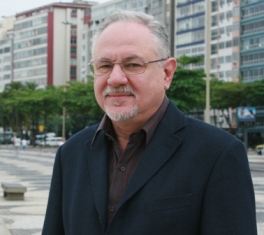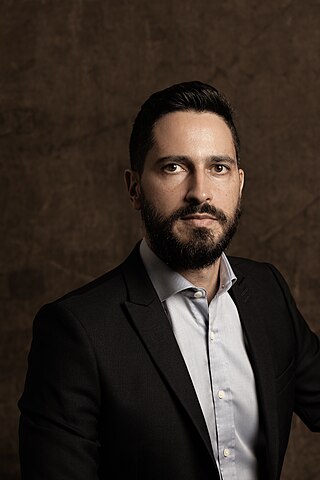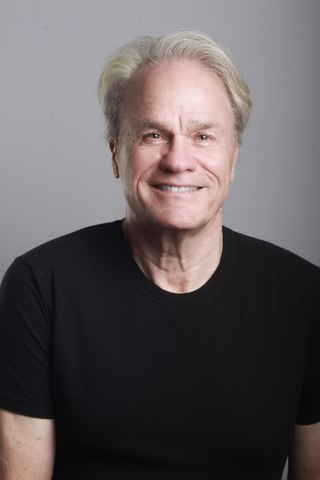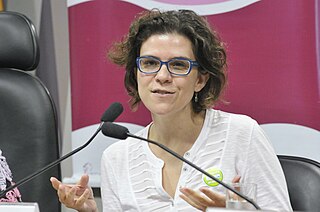
The military dictatorship in Brazil occasionally referred to as the Fifth Brazilian Republic, was a governmental structure established on 1 April 1964, after a coup d'état by the Brazilian Armed Forces, with support from the United States government, against President João Goulart. The Brazilian dictatorship lasted for 21 years, until 15 March 1985. The coup was planned and executed by the most senior commanders of the Brazilian Army and received the support of almost all high-ranking members of the military, along with conservative elements in society, like the Catholic Church and anti-communist civil movements among the Brazilian middle and upper classes. The military regime, particularly after the Institutional Act Number Five in 1968, practiced extensive censorship and committed gross human rights abuses, including institutionalized torture and extrajudicial killings and forced disappearances. Despite initial pledges to the contrary, the military regime enacted in 1967 a new, restrictive Constitution, and stifled freedom of speech and political opposition. The regime adopted nationalism, economic development, and anti-communism as its guidelines.

Brazil is a predominantly Christian country with Islam being a minority religion, first brought by African slaves and then by Lebanese and Syrian immigrants. Due to the secular nature of Brazil's constitution, Muslims are free to proselytize and build places of worship in the country. However, Islam isn't independently included in charts and graphics representing religions in Brazil due to its very small size, being grouped in "other religions", which generally represent about 1% of the country's population. The number of Muslims in Brazil, according to the 2010 census, was 35,207 out of a population of approximately 191 million people. This corresponds to 0.018% of the Brazilian population.

Human rights in Brazil include the right to life and freedom of speech; and condemnation of slavery and torture. The nation ratified the American Convention on Human Rights. The 2017 Freedom in the World report by Freedom House gives Brazil a score of "2" for both political rights and civil liberties; "1" represents the most free, and "7", the least.

Vladimir Herzog, nicknamed Vlado by his family and friends, was a Brazilian journalist, university professor and playwright of Croatian-Jewish origin. He also developed a taste for photography, because of his film projects.

Maurício Waldman is a Brazilian academic and environmental activist.

Bernardo Sorj is a Brazilian social scientist, retired professor of Sociology at the Federal University of Rio de Janeiro. He is Director of The Edelstein Center for Social Research and of the Plataforma Democrática Project. He has published 30 books and more than 100 articles, on Latin American political development, international relations, the social impact of new technologies, social theory and Judaism.
Simon Schwartzman is a Brazilian social scientist. He has published extensively, with many books, book chapters and academic articles in the areas of comparative politics, sociology of science, social policy, and education, with emphasis on Brazil and Latin America. He was the President of the Brazilian Institute for Geography and Statistics (IBGE) and is a retired professor from the Federal University of Minas Gerais. He is member of the Brazilian Academy of Sciences, holder of the Grand Cross of the Brazilian Order of Scientific Merit (1996). He is currently associate researcher at the Institute for Studies in Economic Policy Instituto de Estudos de Política Econômica / Casa das Garças - Rio de Janeiro.

Ruth Vilaça Correia Leite Cardoso GCIH was a Brazilian anthropologist and a member of the faculty of philosophy, letters and human sciences at the University of São Paulo (FFLCH-USP). She was the wife of 34th president of Brazil, Fernando Henrique Cardoso, and First Lady of her country between 1 January 1995 to 31 December 2002. She too was a Ph.D. in anthropology from the University of São Paulo.

Ronaldo Lemos is a Brazilian academic, lawyer and commentator on intellectual property, technology, and culture.

Brazil is a major producer of oranges, which were introduced to Brazil by the Portuguese around 1530.
Countess Adelina von Fürstenberg-Herdringen is an international curator and one of the field's pioneers in broadening contemporary art. A Swiss citizen of Armenian origin — granddaughter of the Armenian architect Dikran Kalfa Cüberyan — she was born in Istanbul. She married when she was still at university, to the photographer Count Franz Egon von Fürstenberg-Herdringen, son of Gloria Guinness (1913-1980) and Count Franz-Egon von Fürstenberg-Herdringen (1896-1975).

Alexandre Kalache is a medical epidemiologist specializing in the study of aging. Since 2012 he is President of the International Longevity Centre-Brazil and since 2015 co-President of the Global Alliance of International Longevity Centres (ILC-GA). He formerly directed the World Health Organization global ageing programme at its Geneva headquarters following an academic career largely at the Universities of London and Oxford in the United Kingdom. Kalache has researched, written and spoken in the field of ageing issues as an academic, an international civil servant and an advocate.
The Igarapé Institute or Instituto Igarapé is a Brazilian-based think tank that focuses on emerging security and development issues. The Institute's stated approach emphasizes research, informed debate, and the development of people centred tailor-made solutions. The views of Igarapé staff have been cited and referenced in news stories in the Brazilian and international press in connection with urban violence and policing internationally and Brazil in particular.

Luiz Carlos Bresser-Pereira is a Brazilian economist and social scientist. He teaches at the Getulio Vargas Foundation, in São Paulo. Since 1981, he has been the editor of the Brazilian Journal of Political Economy.

Jacques Marcovitch is a Brazilian Emeritus Professor at the Business Administration, Economy and Accountancy Faculty and Senior Professor of Strategy and International Affairs at the International Relations Institute at the University of São Paulo (USP) in Brazil. He served as Reitor of that University in the 1997–2001 term. His research is concentrated in five areas. Business strategy on innovation, energy, forest and an environment, university governance, business pioneering and economic history of Brazil and international affairs. Marcovitch is also member of the Board of Guita e José Mindlin Brasiliana Library in São Paulo and the Foundation Board in the Graduate Institute of International and Development Studies (IHEID) in Geneva, Switzerland

James Naylor Green is the Carlos Manuel de Céspedes Professor of Modern Latin American History and Professor of Brazilian History and Culture at Brown University.

Ilona Szabó de Carvalho is a Brazilian political scientist, civic entrepreneur, and co-founder and president of the Igarapé Institute, an independent think-and-do tank focused on human, digital and climate security.

Flávia Biroli is a Brazilian political scientist. She is the author of several books about democracy, gender, and the media. She is a professor of political science at the University of Brasília and a specialist in feminist political theory.
Geledés - Black Women's Institute is a Brazilian political organization of black women against racism and sexism. It is a civil society organization founded on April 30, 1988. Geledés main goal is to eradicate the discrimination present in society that affects black subjects, without discouraging the fight against all other forms of discrimination, such as homophobia, regional, creed, opinion and social class prejudices. Its name derives from the concept of gelede, female secret societies in Yoruba culture.
Bila Sorj is a Brazilian academic and pioneer of women's studies. Born in Brazil, she made aliyah to Israel to work communally on a kibbutz and earn her bachelor's and master's degree from the University of Haifa. Returning to Brazil in 1976, she taught sociology and began incorporating women's studies into her work at the Federal University of Minas Gerais. Completing her PhD at the University of Manchester in 1979, she began teaching at the Federal University of Rio de Janeiro in 1984. She completed post-doctorate studies at the School for Advanced Studies in the Social Sciences in Paris. Her research primarily focuses on employment and the ways that gender affects both paid and unpaid labor. She also studies Judaism. Her 2000 book, Israel terra em transe: democracia ou teocracia?, was a finalist for the Prêmio Jabuti in 2001. She is the coordinator of the Núcleo de Estudos de Sexualidade e Gênero in the graduate program of the department of Anthropology and Sociology at the Federal University of Rio de Janeiro. She is regarded as one of the academics who opened the field of gender studies in Brazil.












